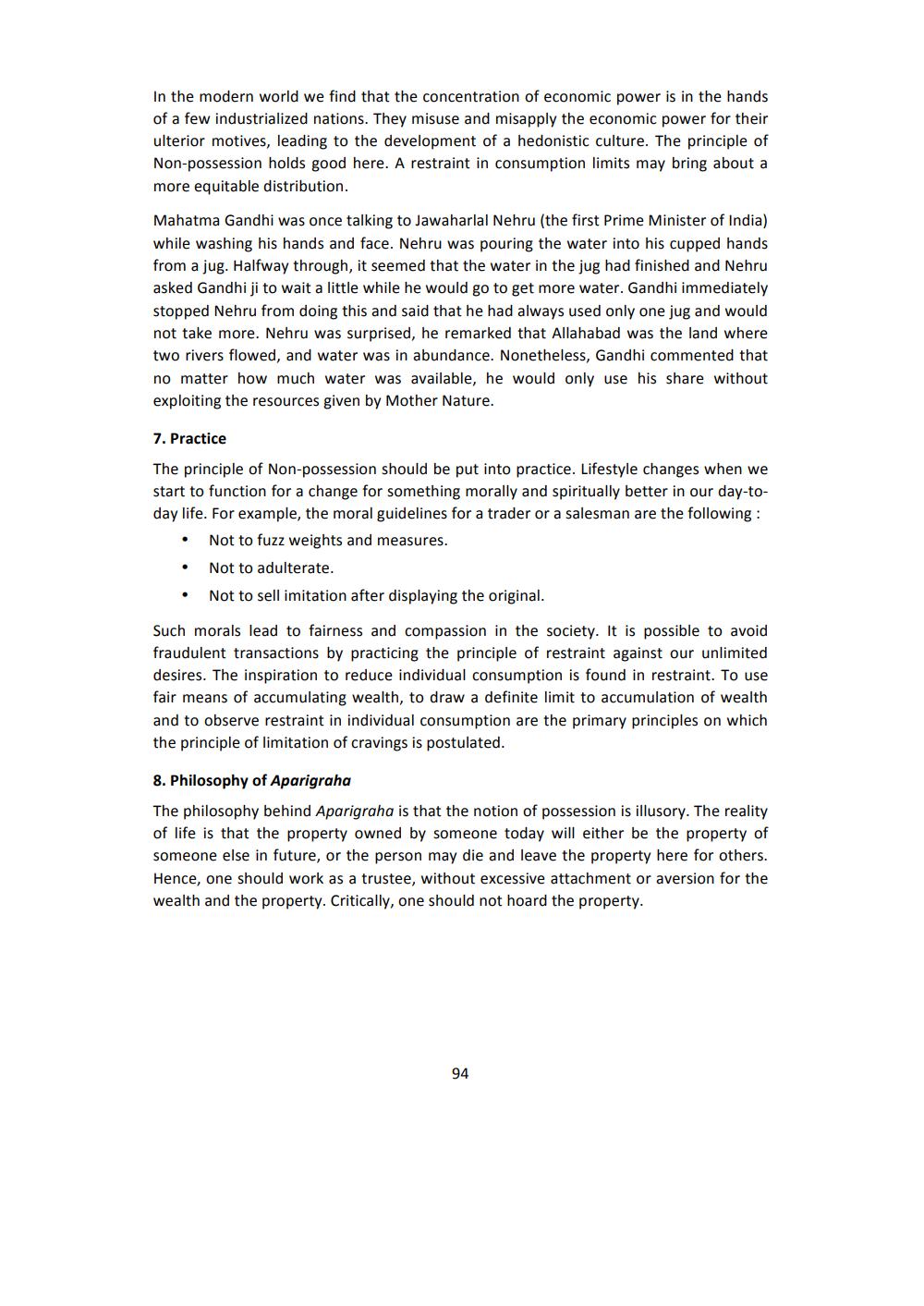________________
In the modern world we find that the concentration of economic power is in the hands of a few industrialized nations. They misuse and misapply the economic power for their ulterior motives, leading to the development of a hedonistic culture. The principle of Non-possession holds good here. A restraint in consumption limits may bring about a more equitable distribution.
Mahatma Gandhi was once talking to Jawaharlal Nehru (the first Prime Minister of India) while washing his hands and face. Nehru was pouring the water into his cupped hands from a jug. Halfway through, it seemed that the water in the jug had finished and Nehru asked Gandhi ji to wait a little while he would go to get more water. Gandhi immediately stopped Nehru from doing this and said that he had always used only one jug and would not take more. Nehru was surprised, he remarked that Allahabad was the land where two rivers flowed, and water was in abundance. Nonetheless, Gandhi commented that no matter how much water was available, he would only use his share without exploiting the resources given by Mother Nature.
7. Practice
The principle of Non-possession should be put into practice. Lifestyle changes when we start to function for a change for something morally and spiritually better in our day-today life. For example, the moral guidelines for a trader or a salesman are the following:
Not to fuzz weights and measures.
Not to adulterate.
Not to sell imitation after displaying the original.
Such morals lead to fairness and compassion in the society. It is possible to avoid fraudulent transactions by practicing the principle of restraint against our unlimited desires. The inspiration to reduce individual consumption is found in restraint. To use fair means of accumulating wealth, to draw a definite limit to accumulation of wealth and to observe restraint in individual consumption are the primary principles on which the principle of limitation of cravings is postulated.
8. Philosophy of Aparigraha
The philosophy behind Aparigraha is that the notion of possession is illusory. The reality of life is that the property owned by someone today will either be the property of someone else in future, or the person may die and leave the property here for others. Hence, one should work as a trustee, without excessive attachment or aversion for the wealth and the property. Critically, one should not hoard the property.
94




